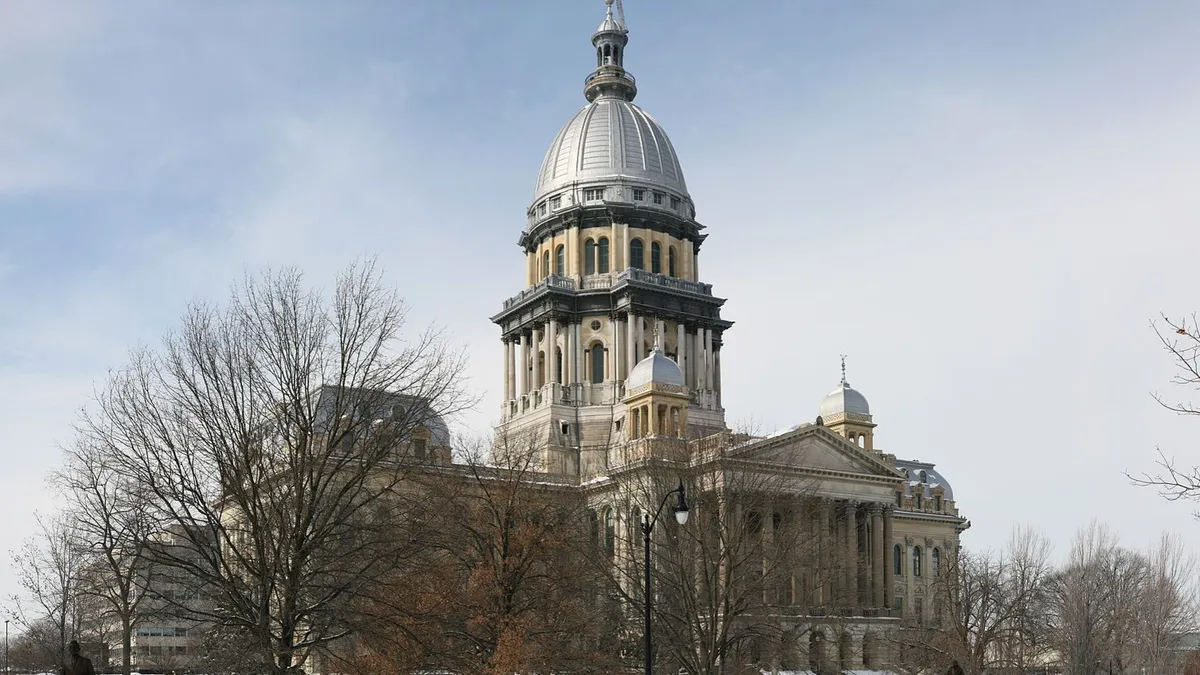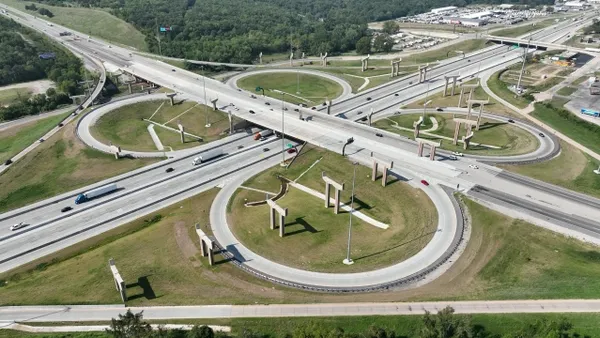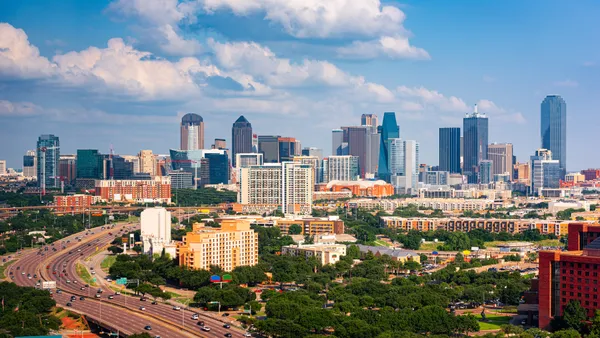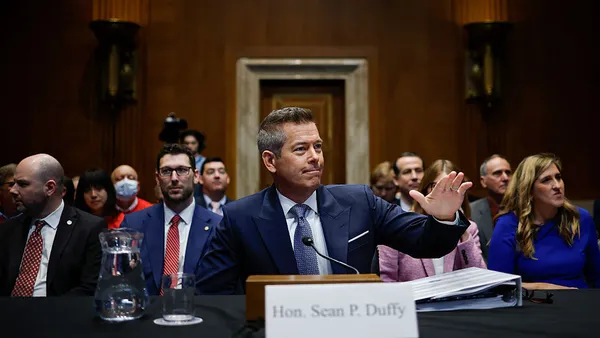Dive Brief:
- The Illinois Department of Transportation on Friday authorized construction crews to restart work on state road and bridge projects after lawmakers passed a full-year budget bill, according to The State Journal-Register.
- The House vote, according to the Engineering News-Record, overrode a veto of a 32% tax increase and a veto of the $36 billion state budget by Gov. Bruce Rauner that had left the state's finances in flux for almost three years.
- The budget's passage allowed about half of 900 transportation projects, worth approximately $3.3 billion, to resume Friday, according to KFVS. The other half should resume this week.
Dive Insight:
IDOT said the four-day shutdown affected 20,000 workers, but the Illinois Road & Transportation Builders Association (IRTBA) placed that number at closer to 30,000. The American Road & Transportation Builders Association (ARTBA) said that if related jobs are included, the number of affected workers could be as high as 43,000, alongside a deficit of up to $35 million due to lost wages and economic activity during the week's shutdown.
Illinois isn't alone in its state budget woes. Around the same time, New Jersey also ordered a partial state shutdown of services on July 1 after lawmakers could not come to a budget agreement this year. However, that stalemate ended July 3, and, unlike last year, no road projects were shut down in the process.
In summer 2016, New Jersey Republicans and Democrats reached a budget impasse over what financial break to give taxpayers in order to counterbalance an agreed-upon gas tax hike. The stalemate had cut off new funds to replenish the state's Transportation Trust Fund — which pays for highway and bridge projects — prompting New Jersey Gov. Chris Christie to stop all roadwork. Work was stopped from July 1 and did not resume until early October, when legislators came to an agreement on a budget.
New Jersey, like Illinois and many northern states, has a relatively short spring and summer construction window during which many highway contractors make the majority of their annual income. This, in turn, meant the shutdown threatened their employees' ability to earn the income they would have expected to make.














